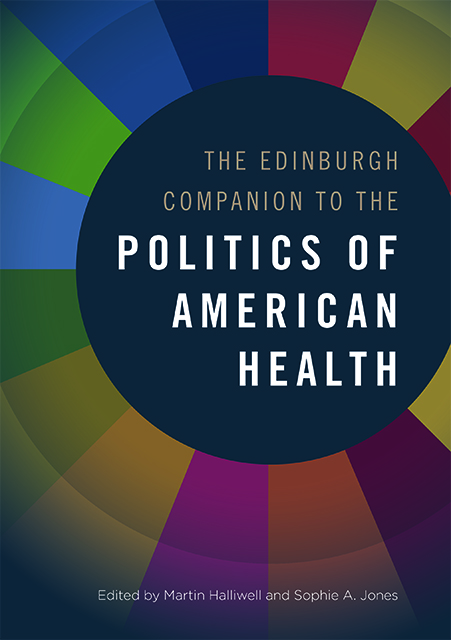Book contents
- Frontmatter
- List of Contents
- Notes on Contributors
- Introduction: The Political Landscapes of American Health, 1945–2020
- I Geography, Community and American Health
- II Critical Health Conditions: Debates and Histories
- III The Politics of Children's Health
- IV The Institutional Matrix of Health Care
- V The White House, Congress and Health Reform
- VI Justice, Ethics and American Health
- VII Public Health and Global Health
- General Bibliography
- Index
30 - Mass Incarceration and Health Inequity in the United States
Published online by Cambridge University Press: 12 August 2023
- Frontmatter
- List of Contents
- Notes on Contributors
- Introduction: The Political Landscapes of American Health, 1945–2020
- I Geography, Community and American Health
- II Critical Health Conditions: Debates and Histories
- III The Politics of Children's Health
- IV The Institutional Matrix of Health Care
- V The White House, Congress and Health Reform
- VI Justice, Ethics and American Health
- VII Public Health and Global Health
- General Bibliography
- Index
Summary
The United States accounts for less than 5 per cent of the world's population, but holds over 20 per cent of the world's prisoners. This astronomical rate of incarceration – commonly referred to as ‘mass incarceration’ – is a relatively recent development in American history. US incarceration rates began to increase in the 1970s and accelerated with the federal ‘War on Drugs’ and the passage of harsh sentencing laws in the 1980s and 1990s. By the mid-2000s the incarceration rate in the United States had quintupled, and over two million people were being held inside American prisons and jails. Due to racial inequalities in arrest and sentencing practices, Black people are incarcerated at five times the rate of whites, and have thus borne the brunt of a mass incarceration system that legal scholar Michelle Alexander famously called ‘the new Jim Crow’.
The focus of this chapter is on the relationship between mass incarceration and health in the US. Unlike most Americans, people in prison have a constitutionally guaranteed right to health care. This means that some individuals may actually receive better access to care while incarcerated than they did while free. At the same time, jail and prison health care in the US is often of poor quality, requests for care are frequently denied, and the conditions of incarceration itself may erode physical and mental health. Moreover, there is increasing evidence that mass incarceration negatively impacts the broader public health, as families and communities – particularly Black communities – suffer adverse health and other consequences as a result of having disproportionate numbers of family and community members cycle through correctional facilities. Thus the impact of incarceration upon health is multifactorial, sometimes paradoxical, and must be understood within the broader context of the US health care system and its shortcomings.
The chapter starts by providing a broad overview of incarceration and health care in the United States, including the rise of racialized mass incarceration, the legal basis for health care in American jails and prisons, delivery and quality of care for incarcerated persons, and a synopsis of the most prevalent health problems in prisons and jails. I then use historical and ethnographic data to examine three key manifestations of the politics of health and incarceration: first, the prison as laboratory; second, the jail as ‘safety net’; and, third, incarceration as a chronic health condition.
- Type
- Chapter
- Information
- The Edinburgh Companion to the Politics of American Health , pp. 511 - 530Publisher: Edinburgh University PressPrint publication year: 2022



